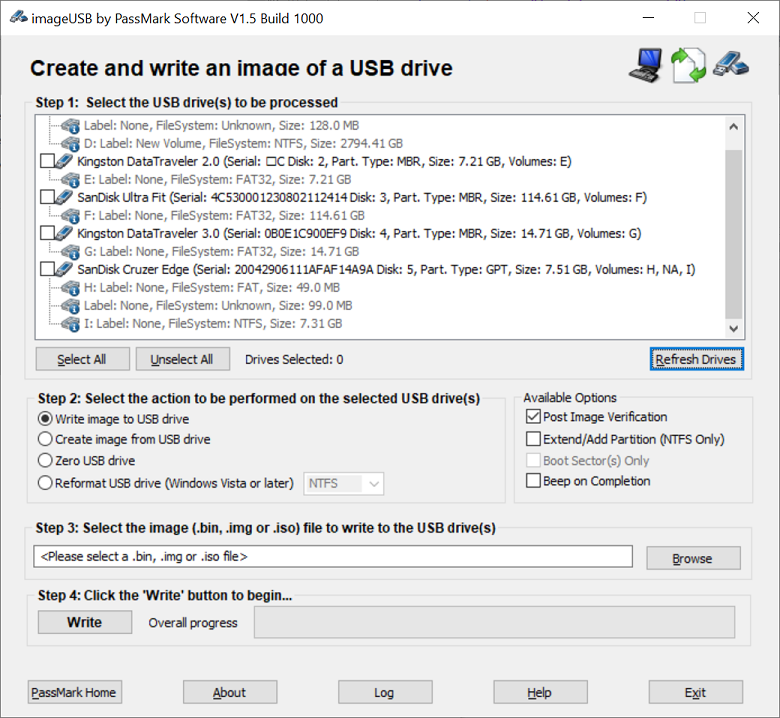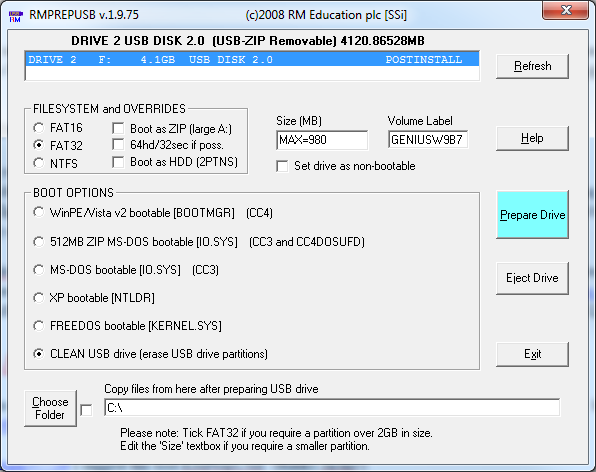
- Copy iso to usb full version#
- Copy iso to usb install#
- Copy iso to usb full#
- Copy iso to usb software#
- Copy iso to usb download#
Copy iso to usb software#
It's also a famous open source operating system that anyone can freely control how the software runs. You can then copy files from the disk to another external disk using the familiar Files utility.Linux is a genuine free operating system, just like Windows (XP, 7, 8, 10) and Mac OS. Perhaps you're reinstalling, or maybe you can't boot but you want to try and recover and back up your files? The live environment will automatically detect and mount most file systems including Linux and Windows. There are tools and methods that allow to chroot (change root) into the normal installation and work in the existing operating system to repair a broken package or other problem that is preventing normal booting.
Copy iso to usb full#
Since the live environment is a full Pop!_OS installation, it works just like the normal environment. The list provided at the beginning of the article provides links to other articles on using the live environment for hardware testing, restoration/upgrades, and boot repair. Pop!_OS will boot into the familiar Pop!_OS desktop. Use the arrow keys to select the USB drive, then press Enter to boot the selection. If done correctly, you should see a boot device selection menu, like one of the following images. You'll need to tell the computer to boot from the live disk by holding a key right as you power on: Firmware
Copy iso to usb install#
Once the flash is complete (it should look like the screenshot above), it's time to boot it up on the machine that you want to install Pop!_OS on! Booting From the Live DiskĪfter creating the live disk, insert the USB drive into your computer, then reboot or power on your system. Now hit the Flash button and watch the magic happen! If there is only one, it should automatically recognize that you have a flash drive inserted and select it. Next, select the drive that you want to use. You should see something like this:Ĭhoose Select Image and navigate to where you downloaded Pop!_OS, click on it and hit the Open button: Once you have installed Etcher and downloaded the Pop!_OS.iso image, open up the Etcher application.
Copy iso to usb download#
button and enter your user password.Įtcher is an open source app for Windows and macOS that allows you to "burn images to SD cards & USB drives safely and easily." You can download it at Etcher.io.

and select the Ubuntu or Pop_OS ISO file. Next select the flash drive in the list on left and click on the three dots on the top right of the window. Press the / key then type 'disks' to launch the Disks application. There's a variety of applications you can use to write disk images to a flash drive, but for this tutorial, we'll use the Disks applicaton for Ubuntu and Etcher for Windows/macOS. In order to make the bootable live disk, you must have a flash drive and software to write the Pop!_OS. If the checksum does not match the one on the download page, you may need to re-download your copy of Pop!_OS and ensure it completes downloading before re-verifying it. iso filenames will change over time, so please make sure you are using the correct.


For Ubuntu/Pop!_OSĪssuming you downloaded Pop!_OS to your ~/Downloads folder, open the Terminal ( + T on Pop!_OS or Ctrl + Alt + T on Ubuntu) and run the following command: For Intel/AMD isoĬertUtil -hashfile Downloads\pop-os_21.04_amd64_nvidia_7.iso sha256 This ensures that you've received the full, complete download and that it is not corrupted. Verifying your download is an important step: we generate a "checksum" for Pop!_OS images and recommend that you verify that your download matches that checksum before trying to install. You can download Pop!_OS here or Ubuntu 20.04 here. This is a disk image with the operating system and installer on it. In order to install Pop!_OS or Ubuntu, you must first download the.
Copy iso to usb full version#
You can run a full version of Pop!_OS or Ubuntu from a USB drive (often known as a thumb drive, flash drive, or USB stick) in what's known as a live environment. Pop!_OS and Ubuntu are remarkably flexible.


 0 kommentar(er)
0 kommentar(er)
